Key takeaways:
- Credit scores greatly influence financial decisions, affecting loan interest rates and housing options.
- Key factors impacting credit scores include payment history, credit utilization ratio, and length of credit history.
- Common myths about credit scores include the belief that checking your own score decreases it and that income directly affects the score.
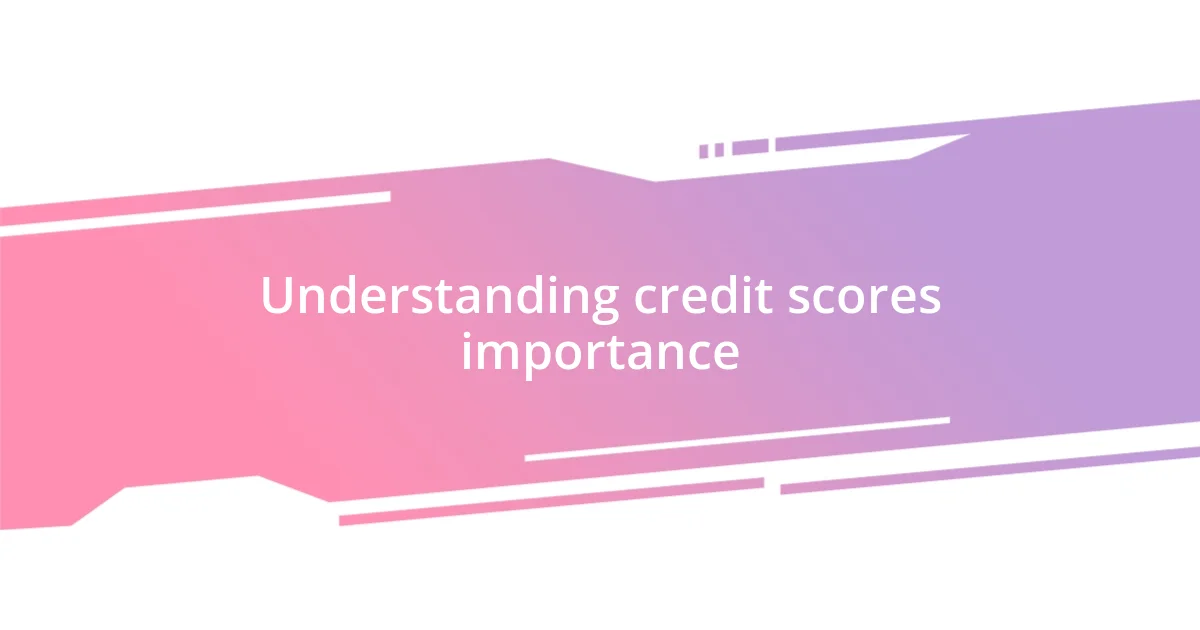
Understanding credit scores importance
Understanding the importance of credit scores is crucial in today’s financial landscape. I remember when I first checked my credit score; it felt like I was peering into a window that reflected my financial habits. Seeing that number made me realize just how much control it has over my life—whether I could buy a car or even rent an apartment.
Credit scores influence many aspects of our financial decisions. I once had a friend whose score took a hit after missing a payment. She found herself paying higher interest rates for her loans, which always made me wonder—could that have been avoided with better score awareness? It’s moments like these that remind us how vital it is to understand these numbers and the weight they carry.
Moreover, a good credit score can open doors to opportunities that others might miss out on. When I qualified for a lower interest rate on my mortgage, it felt like I had hit the jackpot! It’s hard to overstate how often I think about the choices I’ve made that contributed to that score. So, how have you been managing your credit—are you aware of the impact it has?
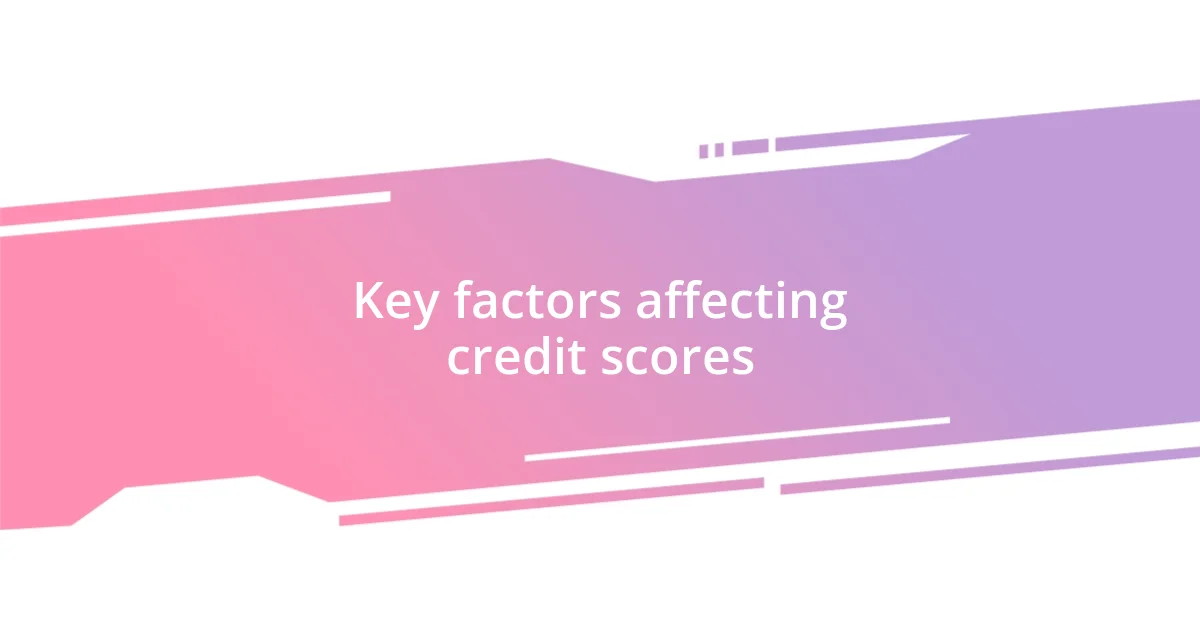
Key factors affecting credit scores
Maintaining a healthy credit score is all about understanding the key factors that contribute to it. One major element is payment history, which accounts for a significant portion of your credit score. I once missed a credit card payment while traveling; I didn’t think much of it at the time, but the stress of seeing my score drop was a wake-up call. Relying on auto-pay can be a lifesaver, as it ensures you never miss a due date.
Another crucial factor is your credit utilization ratio, which is the amount you owe compared to your total credit limit. Ideally, keeping this percentage below 30% can show lenders that you manage your credit responsibly. I fondly recall managing to lower my utilization from 40% to 25% just by paying down a few balances. It felt rewarding to watch my score bounce back, reinforcing how small changes can lead to big results.
Lastly, the length of your credit history plays a role in determining your score; longer histories are generally better. I remember opening my first credit card as a college student and thinking it was a risky move, but now I see it as a foundational step that has helped bolster my score over the years. It’s those early decisions that often make a difference down the line.
| Factor | Description |
|---|---|
| Payment History | Record of on-time and missed payments. |
| Credit Utilization Ratio | Percentage of available credit being used. |
| Length of Credit History | Time since accounts were opened, longer is generally better. |
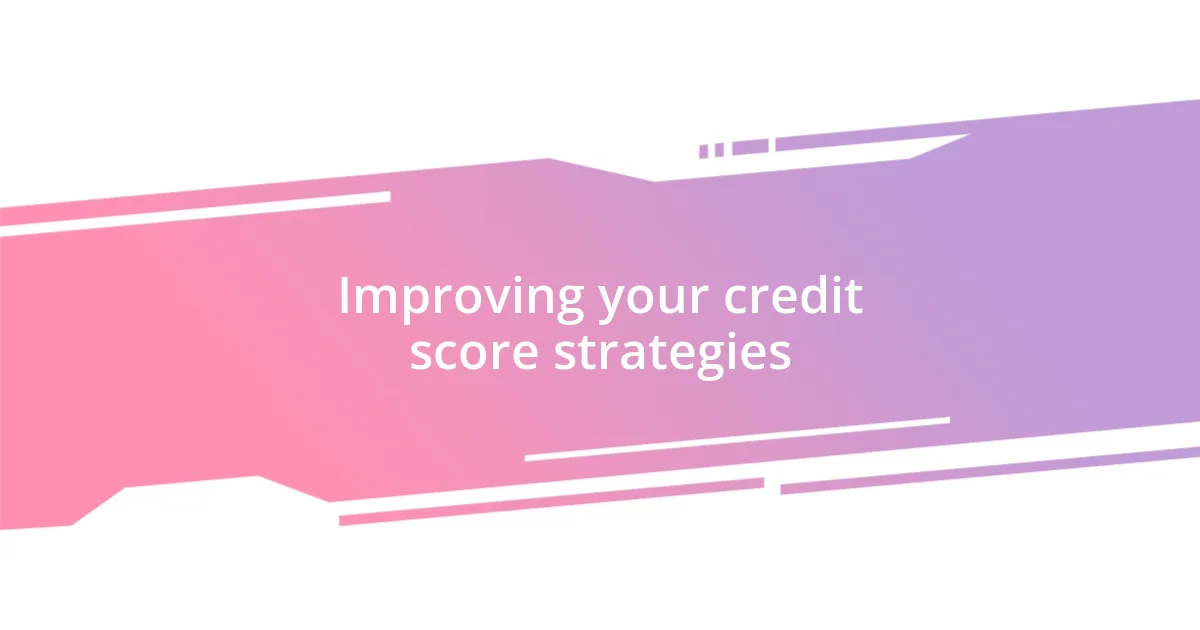
Improving your credit score strategies
Improving your credit score can feel overwhelming, but taking it step by step makes a world of difference. I remember dedicating a weekend to reevaluating my expenses and discovering some subscriptions I’d forgotten about. Cutting those out not only relieved my budget but also allowed room for timely payments, reinforcing the vital habit of not overextending myself.
Here are some effective strategies to raise your credit score:
-
Make Payments on Time: Set up reminders or automatic payments to avoid missed due dates.
-
Reduce Credit Card Balances: Pay down high balances, focusing on those with the highest interest rates first.
-
Keep Old Accounts Open: I’ve learned the longer a credit account is open, the more it benefits my score. Closing old accounts can inadvertently hurt my credit history.
-
Check Your Credit Report Regularly: I found errors on mine that were negatively impacting my score. Disputing these inaccuracies can provide a quick boost.
-
Limit New Credit Inquiries: Each application can temporarily lower your score. I’ve learned to be selective about when to seek out new credit.
With these strategies, I’ve observed how incremental changes can lead to significant improvements over time. Tracking my progress along the way became a motivating factor I didn’t anticipate.
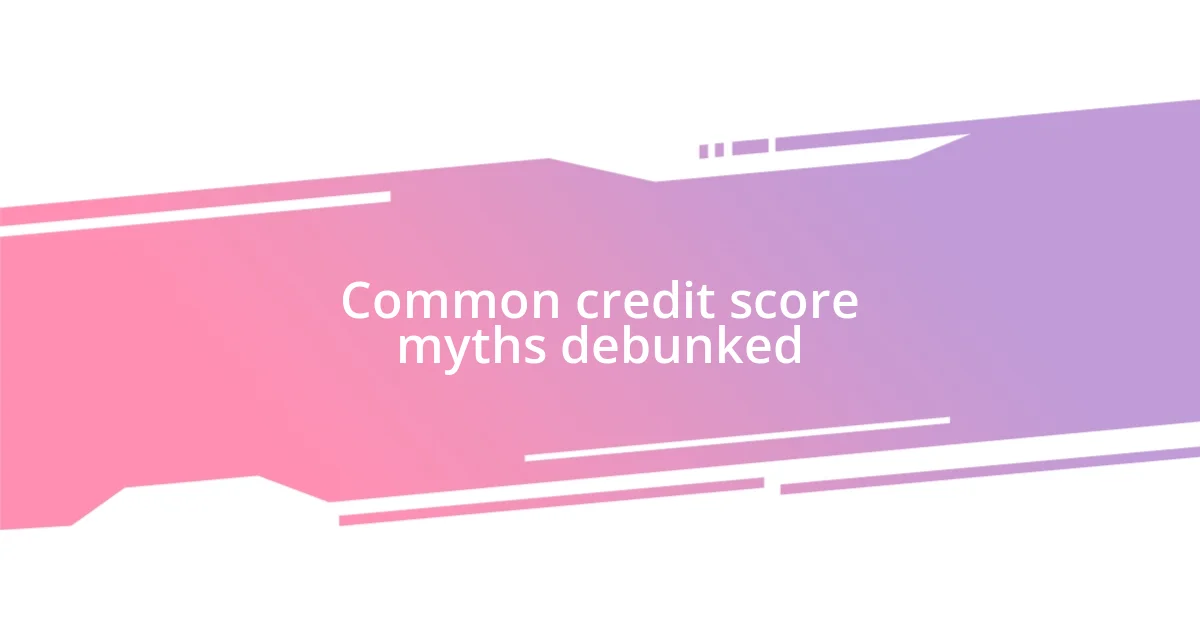
Common credit score myths debunked
There are a lot of misconceptions about credit scores that can trip up even the most diligent individuals. One common myth is that checking your own credit score will lower it. I used to believe this myself, but it turns out shopping for your own credit score does not negatively impact it at all! This is known as a “soft inquiry,” and it’s a great way to stay informed about your financial standing.
Another myth I encountered is that your income level directly influences your credit score. While it’s important to have a stable income for managing payments and debts, the score itself is primarily based on your credit behavior—like payment history and credit utilization. I remember feeling discouraged when I realized this, thinking higher earners might have an unfair advantage. But it’s empowering to know that with good habits and consistent payments, anyone can improve their score, regardless of income.
A common belief is that you need to be in debt to have a good credit score. I used to think this was true and was hesitant to pay off certain small debts. But, when I finally decided to eliminate my credit card balance entirely, I was surprised to see my score rise! Clear debt can reflect responsible credit use, and it made me realize that less can truly be more in this case. Have you ever found yourself holding onto debt simply for the sake of credit building? It’s definitely a myth worth debunking!
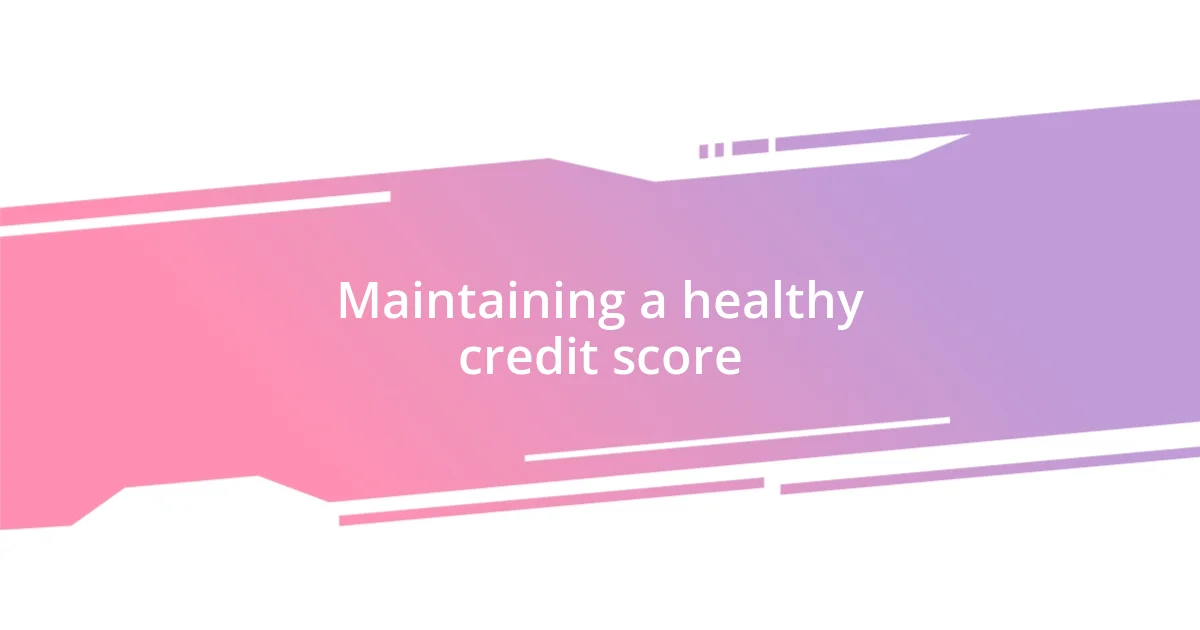
Maintaining a healthy credit score
To maintain a healthy credit score, consistent payment habits are crucial. I remember the days when life got so busy that I forgot payment due dates. That panic when I checked my credit score and saw the dip due to a missed payment was a wake-up call. Now, I’ve set up automatic payments, which has not only simplified my financial life but also reinforced that crucial good habit of timely payments.
Another aspect I’ve learned is to keep an eye on my credit utilization ratio, which is simply the amount of credit I’m using compared to my total available credit. I used to feel invincible with available credit, but when I maxed out cards for a few months, I definitely noticed a drop in my score. Keeping my utilization below 30% has become a rule for me, and I find it gives me peace of mind, knowing I have room to breathe financially.
Lastly, I’ve discovered the importance of regularly reviewing my credit report for errors. Each time I do this, it reminds me of my financial journey and the lessons learned. There’s that moment of shock when I’ve found mistakes that could have hurt my score. By disputing these, it felt empowering to take control of my financial narrative, turning potential setbacks into stepping stones for success. Have you checked your report lately? It’s often eye-opening!














